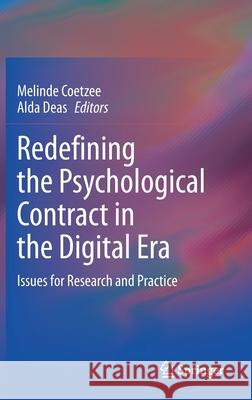Redefining the Psychological Contract in the Digital Era: Issues for Research and Practice » książka
topmenu
Redefining the Psychological Contract in the Digital Era: Issues for Research and Practice
ISBN-13: 9783030638634 / Angielski / Twarda / 2021 / 335 str.
Redefining the Psychological Contract in the Digital Era: Issues for Research and Practice
ISBN-13: 9783030638634 / Angielski / Twarda / 2021 / 335 str.
cena 644,07
(netto: 613,40 VAT: 5%)
Najniższa cena z 30 dni: 616,85
(netto: 613,40 VAT: 5%)
Najniższa cena z 30 dni: 616,85
Termin realizacji zamówienia:
ok. 22 dni roboczych.
ok. 22 dni roboczych.
Darmowa dostawa!
Kategorie:
Kategorie BISAC:
Wydawca:
Springer
Język:
Angielski
ISBN-13:
9783030638634
Rok wydania:
2021
Wydanie:
2021
Ilość stron:
335
Waga:
0.68 kg
Wymiary:
23.39 x 15.6 x 2.06
Oprawa:
Twarda
Wolumenów:
01
Dodatkowe informacje:
Wydanie ilustrowane











